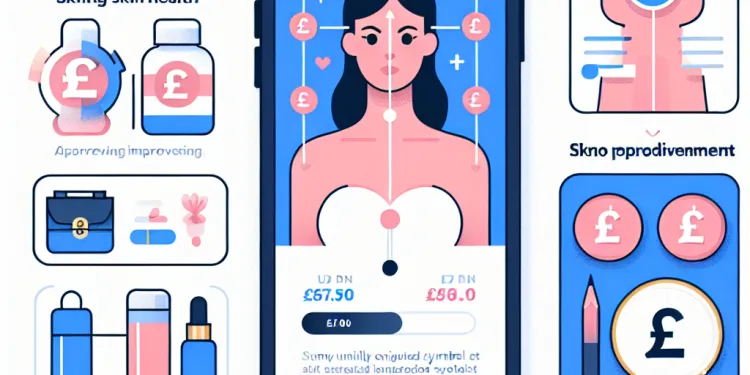
Find Help
More Items From Ergsy search
-

Is eczema contagious?
Relevance: 100%
-

Is there a cure for eczema?
Relevance: 60%
-

What causes eczema?
Relevance: 58%
-

What is eczema? General Information
Relevance: 56%
-

Can diet affect eczema?
Relevance: 56%
-

What are the main types of eczema?
Relevance: 56%
-

Managing and treating your child's eczema
Relevance: 53%
-

Who is at risk of developing eczema?
Relevance: 51%
-

Can eczema improve with age?
Relevance: 51%
-

How can eczema be diagnosed?
Relevance: 51%
-

What treatments are available for eczema?
Relevance: 51%
-

Are there any home remedies for eczema?
Relevance: 50%
-

Factors that trigger eczema in your child
Relevance: 49%
-

How can I prevent eczema flare-ups?
Relevance: 48%
-

Is nettle rash contagious?
Relevance: 47%
-

Eczema - Your child's appointment | Dermatology | Paediatrics
Relevance: 47%
-

Is chickenpox contagious?
Relevance: 45%
-

Is meningitis contagious?
Relevance: 44%
-

Can dust mites cause asthma and eczema?
Relevance: 44%
-

Is shingles contagious?
Relevance: 43%
-

Is impetigo contagious?
Relevance: 42%
-

Are nits contagious?
Relevance: 42%
-

Is shingles contagious?
Relevance: 42%
-

How contagious is measles?
Relevance: 41%
-

Are cold sores contagious?
Relevance: 40%
-

Is Crohn's disease contagious?
Relevance: 40%
-

Is the Super Flu contagious?
Relevance: 40%
-

Is scabies contagious?
Relevance: 40%
-

Are E. coli infections contagious?
Relevance: 38%
-

Is the Nimbus variant more contagious?
Relevance: 38%
-

Is flesh-eating disease contagious?
Relevance: 38%
-

How long is a person with measles contagious?
Relevance: 37%
-

What are common symptoms of eczema?
Relevance: 37%
-

Is chronic fatigue syndrome contagious?
Relevance: 36%
-

How does weather affect eczema?
Relevance: 35%
-

Is the bubonic plague contagious between humans?
Relevance: 35%
-

Is Lyme disease contagious between humans?
Relevance: 33%
-

Can stress make eczema worse?
Relevance: 21%
-

Can adults get impetigo?
Relevance: 21%
-

When should I seek medical help for impetigo?
Relevance: 21%
Understanding Eczema
Eczema, also known as atopic dermatitis, is a chronic skin condition characterized by inflamed and itchy patches of skin. It is a prevalent condition, affecting both children and adults, and it can vary in severity. Common symptoms include dry skin, redness, and itching. Some people with eczema may also experience blisters, crusting, or skin thickening. While the exact cause of eczema is not completely understood, it is thought to be related to a combination of genetic, environmental, and immune factors.
Is Eczema Contagious?
The simple answer to the question "Is eczema contagious?" is no, eczema is not contagious. You cannot catch eczema from another person or spread it to others. Unlike infectious diseases caused by bacteria, viruses, or fungi, eczema is an inflammatory skin condition that arises from non-infectious triggers. These triggers can include allergens, irritating substances, environmental factors, or even stress. Because eczema is related to an individual's unique immune response and genetic makeup, it cannot be transmitted through physical contact, meaning it is entirely safe to be around someone who has eczema.
Common Misunderstandings
Despite being a non-contagious condition, eczema is often misunderstood. Some people may mistakenly assume that visible skin rashes or flare-ups are signs of an infectious disease. This misunderstanding can lead to social stigma or unnecessary concern about interacting with someone who has eczema. Education and awareness are crucial in dispelling myths surrounding eczema, ensuring that those affected by the condition are treated with compassion and understanding.
Managing Eczema
While eczema is not contagious, it can be a challenging condition to manage. Treatment generally focuses on alleviating symptoms and preventing flare-ups. Moisturizing regularly is crucial, as is avoiding known triggers that can worsen the condition. Some people may benefit from topical treatments, such as corticosteroids, or other prescribed medications to manage inflammation and itchiness. For those with severe eczema, consultation with a dermatologist may be necessary to develop a more comprehensive treatment plan. Supporting individuals with eczema involves patience and understanding, as the condition can have a significant impact on their quality of life.
Conclusion
Eczema is a common and non-contagious skin condition that can significantly affect an individual's comfort and well-being. It is important to recognize that while the symptoms of eczema are visible, they pose no risk of contagion to others. By fostering a better understanding of eczema and dispelling myths associated with it, we can create a more informed and supportive society. Encouraging empathy and providing adequate resources for those affected by eczema can help them manage their condition more effectively, improving their quality of life.
Understanding Eczema
Eczema is also called atopic dermatitis. It is a long-lasting skin problem. People with eczema have red and itchy skin. Both kids and grown-ups can have it, and it can be mild or severe. If you have eczema, your skin might be dry, red, or itchy. Some people might have blisters or thick skin too. We don't know exactly why eczema happens, but it might be linked to your genes, things around you, or your body's defense system.
Is Eczema Contagious?
Can you catch eczema from someone else? No, you cannot. Eczema is not something you can catch. It's not like an illness from germs or a virus. Eczema happens because of things like allergies, stuff that irritates your skin, or stress. Because it's not caused by germs, you can be around someone with eczema and not worry about catching it.
Common Misunderstandings
Many people do not understand eczema very well. Sometimes people think spots or rashes on the skin mean someone is sick and can spread it, but that's not true with eczema. This can make people feel bad about their skin. Learning more about eczema helps people be kinder and more understanding to those who have it.
Managing Eczema
Even though you can't catch eczema, it can be hard to live with. To feel better, people with eczema need to keep their skin moist and stay away from things that make it worse. Some might need special creams or medicine from a doctor. If eczema is bad, seeing a skin doctor might help to find the best way to make it better. People with eczema need support and care, as it can really affect how they feel every day.
Conclusion
Eczema is common and does not spread to others. It's important to know that while you can see the rash, you can't catch it. By learning about eczema, we can help make life better for people with it. Being kind and understanding helps, and we should give support to those who have eczema so they can feel better and enjoy life more.
Frequently Asked Questions
Is eczema contagious?
No, eczema is not contagious. You cannot catch it from someone else or spread it to others.
Can I get eczema by touching someone who has it?
No, you cannot get eczema by touching someone with it or through skin-to-skin contact.
Is there a risk of spreading eczema through shared objects?
No, eczema is not spread through sharing objects, clothing, or towels. It is a non-contagious skin condition.
Are there any situations in which eczema can be considered contagious?
Eczema itself is not contagious, but skin infections that occur because of eczema can spread. It's important to treat any infections promptly.
Can children catch eczema at school or daycare?
No, children cannot catch eczema from others at school or daycare as it is not contagious.
Does wearing gloves prevent the spread of eczema?
Gloves are not necessary to prevent the spread of eczema because the condition is not contagious.
Can eczema be passed through saliva or kissing?
Eczema cannot be spread through saliva, kissing, or any other form of close personal contact.
If eczema is not contagious, how does it develop?
Eczema is thought to be caused by a combination of genetic and environmental factors, not by coming into contact with a contagious source.
Can eczema spread from one part of the body to another?
Eczema can appear on different parts of the body, but it does not spread from one part to another through contact.
Does eczema spread between family members?
Eczema is not contagious among family members, though it can be more common in families due to genetic factors.
Should you avoid close contact with someone who has eczema?
There is no need to avoid close contact with someone who has eczema, as it cannot be spread to you.
Does eczema require isolation like other contagious diseases?
No, eczema does not require isolation because it is not a contagious disease.
Is it possible for eczema to spread during a flare-up?
While eczema can worsen during a flare-up, it is still not contagious and does not spread between people.
Can eczema be spread by water or in swimming pools?
Eczema is not spread by water or in swimming pools. It is not a waterborne condition.
If someone has infected eczema, can the infection spread?
Yes, the infection associated with eczema can spread, but the eczema itself is not contagious. Proper treatment is important.
Can using someone else's skincare products spread eczema?
No, eczema cannot be spread by using someone else's skincare products. Allergens or irritants in products may trigger eczema in those who are susceptible.
Why do people think eczema is contagious?
People might mistakenly think eczema is contagious because of its appearance or confusion with contagious skin conditions.
Can eczema be spread through bedding or linens?
No, eczema cannot be spread through bedding or linens. It is not a contagious condition.
Is a person with eczema at a higher risk of transmitting other skin conditions?
While eczema is not contagious, a person with eczema might have a higher risk of skin infections which can be contagious.
How can I reassure someone that eczema is not contagious?
You can educate them about eczema, emphasizing that it is a genetic and inflammatory condition, not an infectious one.
Can you catch eczema from someone?
No, eczema is not something you can catch from other people. You can't give it to them either.
Can I catch eczema from touching someone who has it?
No, you cannot catch eczema from another person. It is not contagious like a cold or flu. You can touch someone with eczema and you will not get it too.
If you need help understanding this, you can:
- Ask someone to read it with you.
- Look at pictures of skin to see what it looks like.
- Talk to a doctor or nurse for more help.
No, you will not get eczema if you touch someone who has it. You cannot catch it from their skin.
Can you get eczema by sharing things with others?
No, you cannot catch eczema from sharing things like objects, clothes, or towels. Eczema is not something you can give to someone else. It is not contagious.
Can you catch eczema from someone else?
No, you cannot catch eczema from other people. Eczema is a skin condition, but it is not contagious. This means it does not spread from person to person.
Eczema can make the skin red, dry, and itchy. People with eczema need to take care of their skin.
If you have questions about eczema, you can talk to a doctor. They can help you understand and take care of your skin.
Eczema does not spread from person to person, so you cannot catch it from someone else. But sometimes, eczema can cause an infection on your skin. These infections can spread to other people, so it's important to see a doctor if you think your eczema is infected.
Can kids get eczema at school or daycare?
No, kids cannot catch eczema from others. Eczema is not like a cold or flu. It's a skin condition that some kids have. It's not contagious, so you do not get it by being near someone with it.
If your child has eczema, there are ways to help. You can use special creams to make the skin feel better. If you have questions, ask a doctor or nurse. They can help you take care of your child's skin.
No, kids can't catch eczema from other people at school or daycare. Eczema is not something you can catch, like a cold.
Can wearing gloves stop eczema from spreading?
Wearing gloves might help protect your hands if you have eczema. Gloves can keep things that bother your skin away. But, gloves do not stop eczema from spreading to other parts of your body.
To help with eczema, you can:
- Use special cream from the doctor.
- Keep your skin clean and dry.
- Wear soft clothes.
If you have questions, talk to a doctor or ask an adult for help.
You don't need gloves to stop eczema from spreading. Eczema is not catching, so you can't give it to anyone else.
Can you get eczema from spit or kissing?
You cannot catch eczema from someone else. Not from their spit, kissing them, or being close to them.
How does eczema start if you can't catch it?
Eczema happens because of genes from your family and things around you, not because you catch it from someone else.
Can eczema move to other parts of the body?
Eczema can happen on different parts of the skin, but it does not spread like a cold. If you scratch it, it can make the skin sore. Try these tips to help:
- Keep your skin clean and dry.
- Use special creams to stop itching.
- Talk to a doctor if it gets worse.
Eczema can show up on different parts of the body. But it doesn't move from one place to another by touching it.
Can you catch eczema from your family?
Eczema is not something you catch like a cold. If someone in your family has it, you won't get it from them. It's something you're born with. If you're unsure, ask a doctor. Reading with a helper or using pictures can also make it easier to understand.Eczema cannot spread from one family member to another. But, if someone in the family has eczema, it is more likely others might have it too because of genes.
Can you be near someone with eczema?
Eczema is not catchy. This means you cannot get it from someone else. You do not need to stay away from people with eczema. It's okay to be close.
If you want help to understand more, you can ask a grown-up or use a picture book.
You do not need to stay away from people with eczema. You cannot catch eczema from them.
Do you need to stay away from people if you have eczema?
No, you don't need to stay away from others if you have eczema. Eczema is not something you can catch from someone else.
Can eczema spread when it gets worse?
Eczema can get worse sometimes. But don't worry—it's not something you can catch from other people, and you can't give it to others.
Can I get eczema from water or swimming pools?
No, you cannot catch eczema from water or swimming pools. Eczema is not contagious. This means it does not spread from one person to another. Eczema is a skin condition that some people have, and you cannot get it from being in water or swimming.
Here's a tip: Make sure to rinse off and moisturize your skin after swimming to keep it healthy.
Eczema does not spread in water or swimming pools. Eczema is not something you can catch from water.
Can eczema infection spread to other areas?
Yes, sometimes when you have eczema, you can get an infection. The infection can spread to other parts of your body. But don't worry, eczema itself does not spread from person to person. It is important to get the right medicine to treat it.
Can sharing someone else's skincare products give you eczema?
Eczema is a skin problem that makes your skin itchy and red. Eczema is not something you can catch like a cold. But sharing skincare products can be risky. Sometimes, using someone else's creams or lotions can irritate your skin or cause other problems.
If you have sensitive skin, it's best to use your own skincare products. Always talk to a grown-up or a doctor if you have questions about your skin. They can help you choose the right products.
Here are some helpful tips:
- Use gentle, unscented skincare products.
- Don't share lotions or creams with others.
- If someone's products make your skin feel bad, stop using them.
No, you can't get eczema from using someone else's creams or lotions. But if you have sensitive skin, some products might make your eczema worse.
Do people believe you can catch eczema from others?
Some people think you can get eczema by touching someone who has it. But this is not true. You cannot catch eczema like a cold or the flu. Eczema is not spread from person to person.
It can help to talk to a doctor or nurse about eczema. They can tell you more and help clear up any confusion.
There are apps and videos that can help you learn about eczema. You can use them to understand more.
Sometimes, people think eczema can spread to others because of how it looks. They might also mix it up with other skin problems that can spread.
Can you catch eczema from sharing bedsheets?
Eczema is a skin problem that makes your skin red and itchy.
You cannot catch eczema from someone else. It does not spread like a cold.
If you share bedsheets with someone with eczema, you will not get it.
If bedding feels itchy, wash it in warm water with gentle soap.
Soft sheets can help your skin feel better.
Ask an adult to help you if you need it.
No, you cannot catch eczema from bedding or sheets. Eczema does not spread from person to person.
Can people with eczema pass on other skin problems easily?
Eczema is a skin condition that makes the skin red, itchy, and dry. It is not a disease you can catch or pass to others.
People with eczema might have dry or sore skin, but it doesn't mean they can pass skin problems to you.
If you're worried, you can ask a doctor to help you understand better. They can give you tips and support to take care of your skin.
Eczema is not something you can catch from someone else. But if you have eczema, your skin can get infections more easily. These infections can spread to other people.
How can I tell someone that eczema is not catching?
Eczema is a skin condition. It is not catching, which means you can't get it from someone else.
Here are some ways to help tell someone:
- Use simple words to explain that eczema is not like a cold or the flu.
- Say that eczema is just how some people's skin gets dry and itchy.
- Show them a book or a website with pictures, so they can see what eczema looks like.
- Tell them they can sit and play with people who have eczema.
To help talk better, use pictures or make drawings. Trying these ways might help them understand.
You can teach them about eczema. Explain that eczema is something you can get from your family, and it makes your skin red and itchy. It is not something you can catch from other people.
Useful Links
This website offers general information and is not a substitute for professional advice.
Always seek guidance from qualified professionals.
If you have any medical concerns or need urgent help, contact a healthcare professional or emergency services immediately.
Some of this content was generated with AI assistance. We’ve done our best to keep it accurate, helpful, and human-friendly.
- Ergsy carfully checks the information in the videos we provide here.
- Videos shown by Youtube after a video has completed, have NOT been reviewed by ERGSY.
- To view, click the arrow in centre of video.
- Most of the videos you find here will have subtitles and/or closed captions available.
- You may need to turn these on, and choose your preferred language.
- Go to the video you'd like to watch.
- If closed captions (CC) are available, settings will be visible on the bottom right of the video player.
- To turn on Captions, click settings .
- To turn off Captions, click settings again.
More Items From Ergsy search
-

Is eczema contagious?
Relevance: 100%
-

Is there a cure for eczema?
Relevance: 60%
-

What causes eczema?
Relevance: 58%
-

What is eczema? General Information
Relevance: 56%
-

Can diet affect eczema?
Relevance: 56%
-

What are the main types of eczema?
Relevance: 56%
-

Managing and treating your child's eczema
Relevance: 53%
-

Who is at risk of developing eczema?
Relevance: 51%
-

Can eczema improve with age?
Relevance: 51%
-

How can eczema be diagnosed?
Relevance: 51%
-

What treatments are available for eczema?
Relevance: 51%
-

Are there any home remedies for eczema?
Relevance: 50%
-

Factors that trigger eczema in your child
Relevance: 49%
-

How can I prevent eczema flare-ups?
Relevance: 48%
-

Is nettle rash contagious?
Relevance: 47%
-

Eczema - Your child's appointment | Dermatology | Paediatrics
Relevance: 47%
-

Is chickenpox contagious?
Relevance: 45%
-

Is meningitis contagious?
Relevance: 44%
-

Can dust mites cause asthma and eczema?
Relevance: 44%
-

Is shingles contagious?
Relevance: 43%
-

Is impetigo contagious?
Relevance: 42%
-

Are nits contagious?
Relevance: 42%
-

Is shingles contagious?
Relevance: 42%
-

How contagious is measles?
Relevance: 41%
-

Are cold sores contagious?
Relevance: 40%
-

Is Crohn's disease contagious?
Relevance: 40%
-

Is the Super Flu contagious?
Relevance: 40%
-

Is scabies contagious?
Relevance: 40%
-

Are E. coli infections contagious?
Relevance: 38%
-

Is the Nimbus variant more contagious?
Relevance: 38%
-

Is flesh-eating disease contagious?
Relevance: 38%
-

How long is a person with measles contagious?
Relevance: 37%
-

What are common symptoms of eczema?
Relevance: 37%
-

Is chronic fatigue syndrome contagious?
Relevance: 36%
-

How does weather affect eczema?
Relevance: 35%
-

Is the bubonic plague contagious between humans?
Relevance: 35%
-

Is Lyme disease contagious between humans?
Relevance: 33%
-

Can stress make eczema worse?
Relevance: 21%
-

Can adults get impetigo?
Relevance: 21%
-

When should I seek medical help for impetigo?
Relevance: 21%


